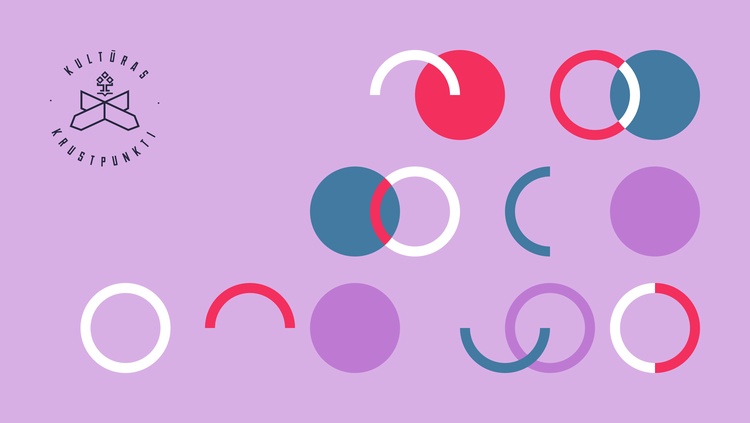
Culture Crossroads XIX: AI, Youth Participation, and Cultural Priorities in Challenging Times
From 4 to 7 November 2025, the Latvian Academy of Culture (LAC) will host the international conference series “Culture Crossroads XIX,” which will once again bring together researchers, students, policymakers, cultural professionals, and representatives of the creative industries to discuss current developments in culture and the arts. Over four days, the conference series will offer a wide thematic and format diversity – from the role of culture in social development and youth civic participation to the impact of artificial intelligence on cultural content and the latest research in cultural and creative industries.
On 4 November, at the National Film School Pavilion (58a Miera Street, 10:00–18:00), the conference “The Cultural Service Basket in the Shadow of Budget Cuts” will take place, focusing on the potential for implementing the concept of a cultural service basket in Latvian municipalities. Experts, policymakers, and local government representatives will seek solutions to maintain the diversity and continuity of cultural processes at a time when budgetary and security priorities restrict available resources. Discussions will address cooperation between national, municipal, and private sectors, as well as the diversity and relevance of cultural offerings to community needs across Latvia. The conference is organized within the State Research Programme “Latvian Culture – a Resource for National Development”, project “Cultural and creative ecosystem of Latvia as a resource of resilience and sustainability” (CERS).
On 5 November, the Theatre House “Zirgu pasts” (46 Dzirnavu Street, 9:30–17:00) will host the international scientific conference “Youth Civic Participation: Decorative or Authentic? Formal or Meaningful?”, which will explore youth civic engagement in the context of threats to democracy, technological innovation, and geopolitical crises, with particular attention to new, alternative, and non-traditional forms of participation. The working language of the conference will be English. At 18:00, in cooperation with the Promotional Society of Museology in the Baltics, the day will conclude with the launch of the Latvian translation of Nina Simon’s book “The Participatory Museum.” The conference is organized within the State Research Programme project “Preconditions of authentic youth participation in formal and non-formal education” (UNFRAMED) and the Fundamental and Applied Research project “Striving Towards Participatory Engagement in Museums: Inquiry into Museum Education Practice in Latvia” (MEET).
On 6 November, at the National Film School Pavilion (58a Miera Street, 10:00–16:30), in cooperation with the Latvian National Commission for UNESCO, the international conference “Artificial Intelligence as a Source and Threat to the Diversity of Cultural Content: Perspectives of Artists, Audiences, and Policymakers” will take place. Researchers from Latvia and abroad will provide diverse perspectives on the impact of artificial intelligence on cultural processes and artistic creation – from technological and ethical dimensions to policy development and the accessibility of cultural heritage in the digital environment. The conference will also address the opportunities and challenges of generative AI for the creative industries, while the concluding session will focus on digital memory and cultural heritage resources. The working language of the conference will be English.
On the final day, 7 November, more than 60 researchers and cultural professionals will present their findings, conclusions, and proposals across six thematic sections at the LAC “Gara māja” and National Film School (58a Miera Street, starting at 9:30):
· Performing and Audiovisual Arts
· Cultural Heritage
· Culture and Society
· Cultural Contact Studies and Language in Culture
· Art, Literature, and Visuality
· Philosophy in Latvia (1944–1991): Conversions and Ruptures
During the section day, the traveling exhibition “Science for Latvia 2025” will also open at Gara māja, offering visitors the opportunity to learn about 12 outstanding Latvian scientists and their contributions to research and society. Highlighting the role of the Latvian Academy of Culture in advancing research, this diverse exhibition, created by the Ministry of Education and Science, will be on view at LAC from 7 to 27 November 2025. The science calendar has been developed within the ERDF project No. 1.1.1.1/1/24/I/001 “More Effective and Smarter Implementation and Management of Latvia’s Science Policy.”
The conference series will conclude at 19:00 in the Corner House (61 Brīvības Street) with the performative discussion “Self-Criticism of Soviet Philosophers: A Performatory Debate,” in which philosophers Andrejs Balodis, Andris Hiršs, and Ainārs Kamoliņš will examine the role of intellectuals under totalitarian regimes. This thematic section and event are implemented within the Latvian Council of Science’s Fundamental and Applied Research project “Conversions and Ruptures: Epistemic Strategies in Latvian Philosophy during the Soviet Period (1944–1991)” (No. lzp-2024/1-0650).
The detailed programmes of the conference series will be published shortly. The events on 4, 5, and 6 November will be livestreamed on LAC’s Facebook (facebook.com/kulturasakademija) and YouTube (youtube.com/@LKAkademija) channels.
The research focus of the Latvian Academy of Culture lies in interdisciplinarity and the study of cultural and artistic phenomena. Throughout its 19-year history, the annual international conference series “Culture Crossroads” has become a major event in the Latvian academic and cultural landscape, engaging experienced researchers, students, cultural practitioners, and creative professionals alike. Each year, the conference fulfils its strategic aim – to provide a communicative platform for the theoretical and practical dissemination of research in culture and the arts.
Prepared by: Aija Lūse
Science Communication Specialist
Coordinator of the “Culture Crossroads XIX” Conference Series
Institute of Cultural Studies and Arts, Latvian Academy of Culture

_F8PR9mg.png)


